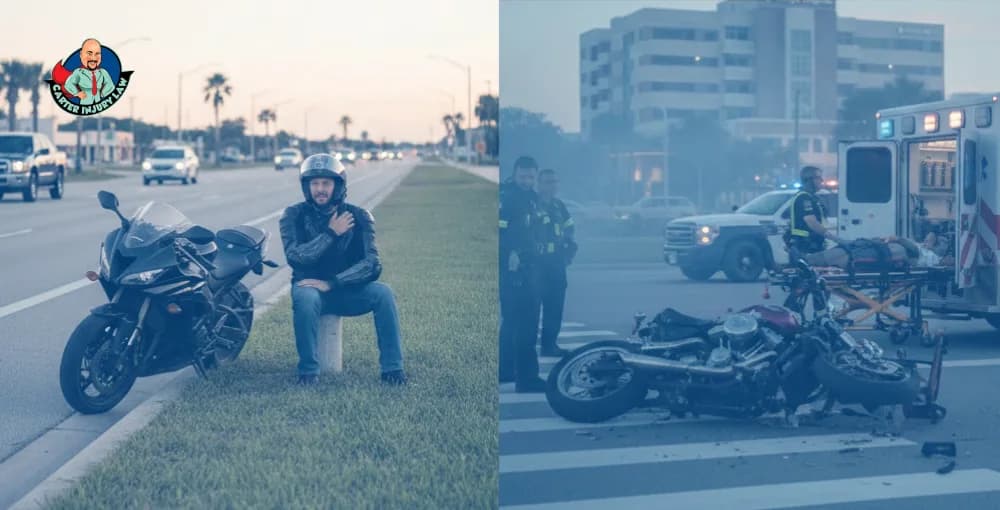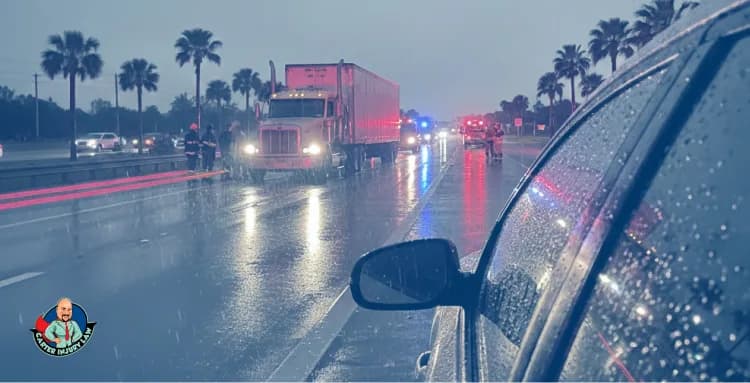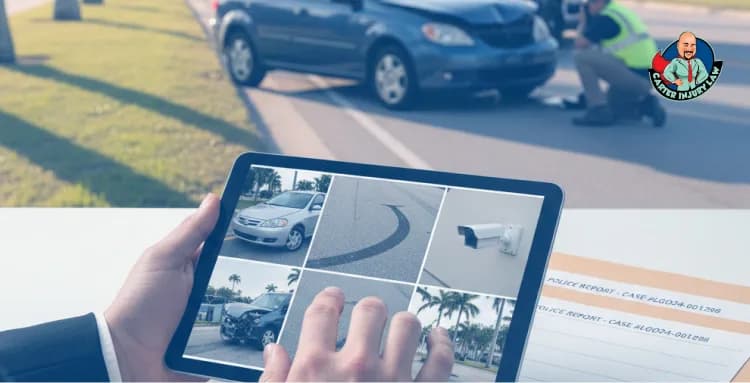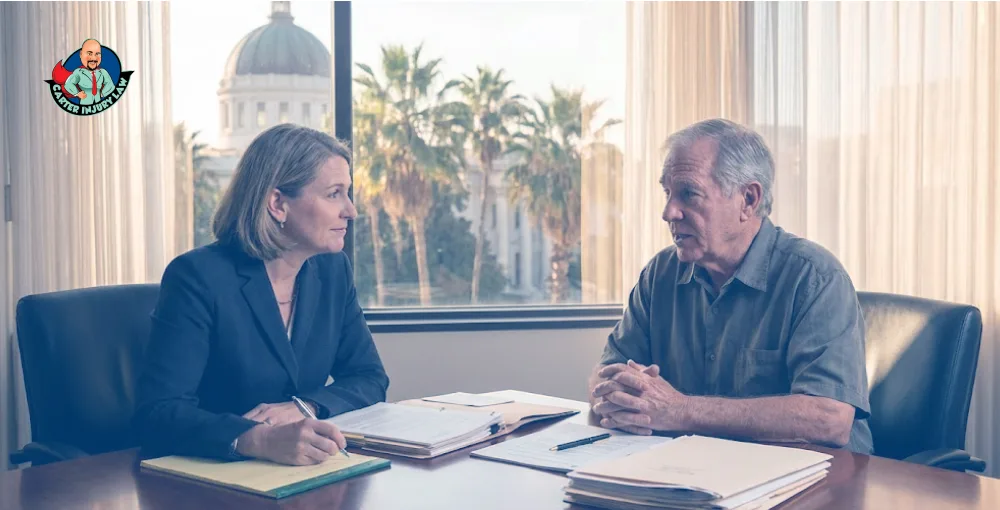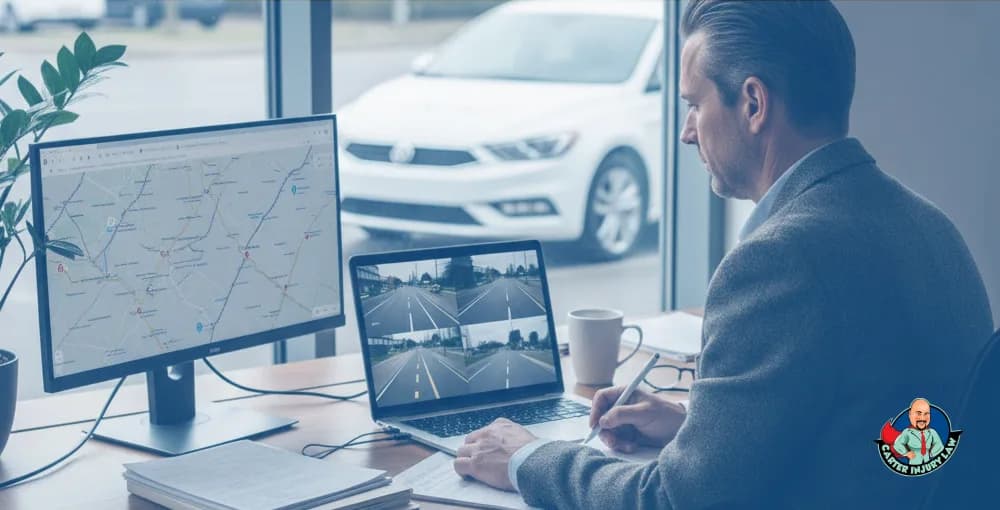When you've been injured on the job, the last thing you want is to be confused about your legal options. Yet for many Florida workers, the difference between a workers compensation claim and a personal injury lawsuit is the make-or-break factor in whether they’ll receive the full support they need to recover.
Both legal options exist to protect injured people; however, they operate in very different ways. Choosing the wrong path could mean missing out on compensation you’re legally entitled to or worse, being stuck with bills and wage losses you can’t afford.
So, let’s walk through your options together.
1) Difference Between Workers Compensation and Personal Injury
When you’ve suffered an injury on the job, one of the first legal decisions you’ll face is whether to pursue a workers compensation claim or a personal injury lawsuit. Both offer a way to recover damages. However, they operate under entirely different rules, timelines, and compensation limits.
(I) Workers Compensation, A No-Fault, State-Regulated System
Workers compensation is a form of insurance that your employer is legally required to carry in Florida if they have four or more employees (or just one, if they’re in construction). It doesn’t matter who caused the accident. Even if it was your mistake, you’re still entitled to benefits if the injury happened while performing work-related duties.
This system is intended to get you support quickly, without the burden of proving fault. You’ll typically receive:
Full coverage of necessary medical treatment
A portion of your lost wages (usually 66⅔% of your average weekly earnings, up to the state’s cap)
Disability benefits (temporary or permanent)
Vocational rehabilitation, if needed
However, you cannot sue your employer for negligence if you accept workers compensation. That’s the tradeoff. It’s a system built for speed and stability, not maximum financial recovery. Industry reports estimate that well over 90% of workplace injury claims are resolved through workers compensation, not lawsuits.
(II) Personal Injury, Fault-Based Yet Financially Reliable
Personal injury law, by contrast, requires proof that someone else’s negligence or wrongful act caused your injury. This could be your employer if they intentionally ignored safety protocols or a third party, like a subcontractor or equipment manufacturer.
What makes personal injury lawsuits appealing (and in some cases, necessary) is the scope of damages available. Unlike workers compensation, a lawsuit can cover:
100% of your lost income , both past and future
Medical expenses (including long-term or experimental treatments)
Pain and suffering
Emotional distress
Loss of enjoyment of life
Punitive damages, in rare cases
However, personal injury cases take time. They involve investigations, negotiations, and sometimes trial. And most importantly, they require evidence of fault.
(III) Who Qualifies for What?
You’re eligible for workers compensation if you’re an employee in Florida and your injury occurred during the course of your employment. This includes injuries from sudden accidents or cumulative trauma (like repetitive strain).
You may qualify for a personal injury claim if:
A third party (not your employer) caused or contributed to your injury
Your employer acted with gross negligence or deliberate misconduct
You were injured due to unsafe premises, faulty equipment, or untrained subcontractors
Your employer failed to carry legally required workers comp insurance
In some exceptional cases, you may even pursue both workers compensation from your employer and a third-party personal injury lawsuit simultaneously.
2) What Does Workers’ Compensation Cover in Florida?
In Florida, workers’ compensation offers a no-fault safety net, meaning you don’t need to prove your employer did anything wrong. If your injury happened on the job and your claim is accepted, you’re entitled to specific benefits defined by law. Here's what that includes:
(I) Medical Care
All authorized medical treatment related to your injury is covered, such as hospital visits, surgeries, prescriptions, diagnostics, therapy, and mileage to appointments. You must use providers approved by your employer’s insurance company.
(II) Lost Wages
After being out of work for seven calendar days (or starting from Day 1 if the disability lasts more than 21 days), you become eligible for wage replacement. That’s 66⅔% of your average weekly wage, up to a legal maximum of $1,295 per week for injuries starting in 2025.
(III) Disability Benefits
Depending on your recovery, you may qualify for:
Temporary Total Disability (TTD): if you’re totally out of work
Temporary Partial Disability (TPD): if you can work with restrictions and earn less
Permanent Impairment Benefits (IIB): when you reach maximum medical improvement but still have lasting impairment
Permanent Total Disability (PTD): if you’re unable to work at all, even in other fields
(IV) Vocational Rehabilitation
If you can’t return to your previous job, Florida law may entitle you to vocational rehabilitation services. This includes vocational counseling, job skills training, transferable skills analysis, and job placement support. These services help you return to suitable gainful employment.
3) Can You Sue Your Employer Instead of Filing for Compensation?
Under Florida law, most injured workers can’t sue their employer directly. That’s because of the “exclusive remedy” rule under Florida Statutes § 440.11, which means workers’ compensation is typically your only legal option if your employer has coverage.
However, exceptions do exist, and they can make all the difference in your case.
No Workers’ Comp Insurance? If your employer doesn’t carry the required workers’ comp insurance, you’re no longer limited to the workers’ comp system. In this situation, you may file a personal injury lawsuit, potentially recovering damages for pain and suffering, emotional distress, and more things workers’ compensation never covers.
📎 Source: Florida Division of Workers' Compensation
Third-party liability can offer legal options. Your employer is not to blame for every workplace injury. If your accident was caused by someone other than your employer, a subcontractor, delivery driver, equipment manufacturer, etc., you may be able to file a third-party lawsuit, even if you are receiving workers' compensation.
When an employer's actions go too far. While rare, lawsuits may be permitted if your employer's conduct exceeds negligence and crosses the line into intentional harm or gross misconduct. According to Florida Statutes § 440.11(1)(b), employers can take this action if they meet specific legal requirements.
Check out our most relevant blogs :
Should You File or Sue? Carter Injury Law Helps You Decide
Every injury has a story. Maybe it was a fall. Maybe you were using faulty equipment. Or maybe you were hurt by someone from another company entirely. No matter how it happened, Carter Injury Law is here to help you choose the legal path that puts your recovery first.
If you’re caught between filing a workers’ comp claim and wondering if you can sue your employer instead, you shouldn’t have to figure it out on your own. Florida law can be tricky, especially with its “exclusive remedy” rule; however, that doesn’t mean you’re without options. Choosing the right path isn’t about being litigious; it’s about protecting your future.”
We, the attorneys at Carter Injury Law, understand both sides of workplace injury law. Whether you’re eligible for traditional workers' comp, or your case involves third-party liability or even a rare exception that lets you sue your employer directly. We'll help you make the right move from the start.
Don't attempt this on your own. Reach out to Carter Injury Law for a free case evaluation. We’ll help you protect your rights, avoid delays, and maximize the compensation you deserve.




